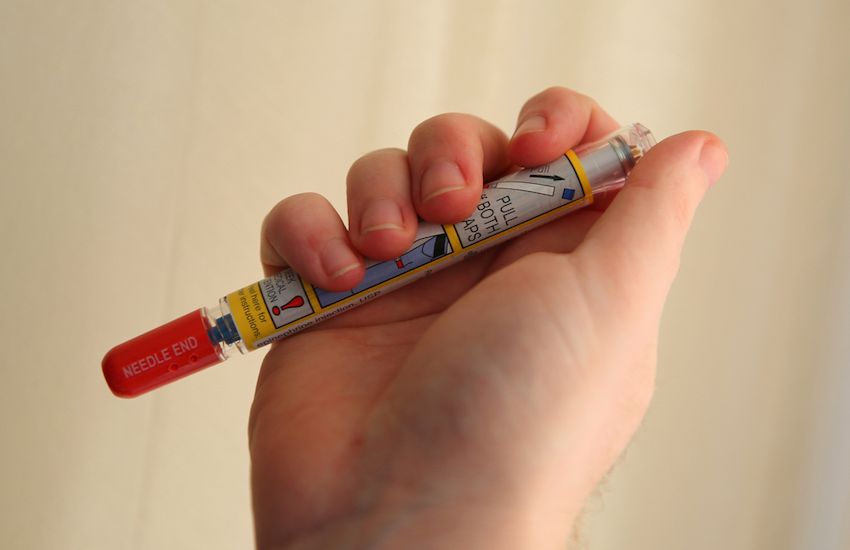


Guernsey is lagging more than eight years behind safety moves made in the UK aimed at preventing avoidable deaths in schools.
The UK changed the law in October 2017 to allow all schools to buy spare adrenaline auto-injectors for use on children with serious allergies in emergencies.
In Guernsey, parents need to supply one which can only be used for the named child.
Now, Health & Social Care is looking to lift a legal quagmire that would pave the way for quicker changes to restrictions on use of prescription only medicines including adrenaline auto-injectors like EpiPens, but making no promises about whether that will lead to change.
The move in the UK followed the death of 13-year-old Karanbir Cheema, who died after another student flicked a piece of cheese at him, triggering his dairy allergy. His own EpiPen was out of date - and did not work when it was administered.
Since then, campaigners have called for it to be made mandatory for schools to carry spares and have this extended to places like restaurants.
"The current process to amend legislation relating to prescription only medicines is by Ordinance of the States," a Health & Care spokesperson said.
"Given the clinical nature of these provisions, the Committee for Health & Social Care is currently finalising proposals to present to the States which, if agreed, will enable it to respond to matters such as this in a timelier manner."
If accepted, the committee would be able to make regulations around retail sales and administration of prescription-only medicines instead of a longer process that requires a full report to the States and legal changes often following some time after that.
"The example given of changes in the UK, in relation to schools and educational settings holding a stock of adrenaline auto-injectors for emergency use in cases of anaphylaxis, is one of the examples included in the committee's Policy Letter where changes could be made.
"However, at this stage there are no confirmed proposals to do so. The committee are focused on getting the legislation changes to enable us to have the flexibility needed."
The Policy Letter will be published for debate this term and the committee will then need to prioritise which regulations it wants to change.
A spokesperson for Guernsey's Education Office said: "We hold stocks of EpiPens securely in school for named children who have a known allergy, and where their parents have engaged with the school to provide information and epipens, which are sourced via prescription.
"School nurses provide training to staff on how to administer them in an emergency. Any legislation changes would be led by HSC and we would of course discuss any relevant matters with them."
They were asked for data on how many allergic reactions had been recorded in educational settings and how that had changed over time and how many times EpiPens had been administered in the last five years but did not respond to those questions.
The EpiPen issue is not the only one where Guernsey trails in best practice around allergies.
Currently there is no legislation or guidance to require food businesses to disclose allergens on menus or food labels to to provide information in any format.
That is also under review - changes tightening up labelling laws were made in the UK in September 2019.
Known as "Natasha's Law, it was named in honour of 16-year-old Natasha Ednan-Laperouse who died from an anaphylactic reaction after eating a shop-bought baguette that did not list the allergen responsible on its label.
A national strategy for allergy is currently being considered there by medics and advocates from the National Allergy Strategy group.
It will be published in October.
Professor Adam Fox, chairman of the National Strategy for Allergy, told the BBC that the prevalence of food allergies was rising, leading to an increase in the number of severe reactions.
"After the home, the most common place for reactions is schools, followed by restaurants," Prof Fox explains, adding that policy makers needed to consider whether better access to adrenaline pens could help keep allergy sufferers safe.
Comments
Comments on this story express the views of the commentator only, not Bailiwick Publishing. We are unable to guarantee the accuracy of any of those comments.